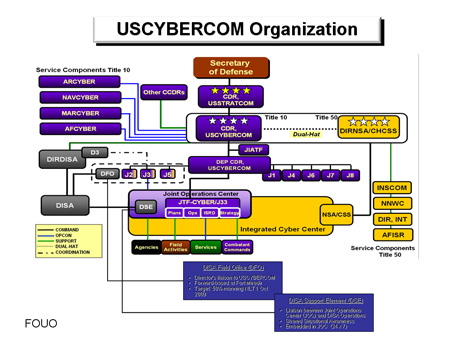It is a matter of procedure to investigate these kinds of activities and the people involved in them. In the case of national security and protocol violations, the checks and balances are required and this includes agencies such as the State Department, the FBI, the Justice Department and the Department of Homeland Security.
Bijan Rafiekian is Chairman, President, CEO and Secretary of the Flynn Intel Group, Inc. Other officers are Michael Flynn and Philip A Oakley.
–> 2 Items UPDATE:
1. More important names in the Flynn affair: Former FBI agent and Admiral
2. Supplemental Lobby Registration document
The Delaware filed NSD/FARA registration document is here. It was filed on March 7, 2017.
Further and quite curious is just how was Flynn lobbying Congress? Here is a document filed to the Senate as well along with payments.
12/21/16, Intelligence Online: “When he was a private consultant, Flynn worked for Inovo, a Dutch firm owned by Kamil Ekim Alptekin, the Turkish chairman of the U.S.-Turkey Business Council (USTBC) and a close advisor to President Recep Tayyip Erdogan. Alptekin is very well-connected to the Turkish government security apparatus. He is the chairman of the board of ATH Defence and Security Solutions Co, which sells monitoring and intelligence equipment. According to our sources, ATH supplies materiel to the Turkish intelligence service MIT (Milli Istihbarat Teskilati, and the Turkish police force’s intelligence units.”
12/15/16: Bloomberg: “[Flynn Intelligence Group] worked as a lobbyist for Inovo BV, a Dutch company with close ties to Turkish President Recep Erdogan.”
11/29/16, Al-Ahram Weekly: “[Trump’s] national security adviser, Lieutenant General Michael Flynn, a former head of the Pentagon’s Defense Intelligence Agency (DIA), has been outed for signing a contract with a Dutch company operating as a front for a Turkish government contractor with close ties to the Erdogan regime.”
11/19/16, AP: “[Flynn’s] his private consulting firm has lobbied for a company headed by a Turkish businessman tied to Turkey’s authoritarian, Islamist-leaning government, which cracked down on dissent and jailed thousands of opponents after a failed coup in July against Turkish President Recep Tayyip Erdogan.”
11/19/16, CNN: “According to the official document, Kelley was working on behalf of Inovo BV, a Dutch firm owned by Turkish businessman, Kamil Ekim Alptekin.
Alptekin told CNN in an email that the firm works to strengthen ‘the transatlantic relationship and Turkey’s future in that alliance.'” More here.***
Bijan Rafiekian was a member of the Board of Directors of the Export-Import Bank of the United States and earlier in his career, he was president of GLOBTEL and Greezone Systems, Inc. At the Export-Import Bank, Rafiekian was assigned to work deals to export coal to third world countries.
Flynn’s company was paid $535,000 by Alpetkin between September of November of 2016 with an assigned focus to take on Fethullah Gulen, a Turkish cleric living in exile in Pennsylvania. If Trump and his White House press spokesperson declared they did not know about General Flynn’s outside lobby work, it is strains the fact that Bijan Rafiekian actually was named to the Trump transition team. Further, through this process, Flynn hired SGR LLC to do the public affairs work on the Inovo project. In all fairness however, all parties involved here were against Hillary Clinton winning the presidency. More here.
*** Another reason there is scrutiny of members of the early Trump team includes Carter Page.
WASHINGTON (AP) — At Moscow’s New Economic School, the annual graduation ceremony often features a prominent political figure. President Barack Obama addressed graduates at the prestigious institution in 2009. The former presidents of Mexico and the Czech Republic have spoken at recent ceremonies.
Last year, the university invited Carter Page, a little-known former investment banker and foreign policy adviser to then-U.S. presidential hopeful Donald Trump. It wouldn’t be the last time Page would draw unexpected — and some say outsized — attention for his relationship to Trump, his entanglements in Russia and the murky nexus between the two.
Page, who left the campaign before the election, has emerged as a key figure in the controversy surrounding Trump associates’ connections to Russia. The New York Times has reported that Page is among the Trump associates whose potential contacts with Russia are being investigated by the FBI. Congressional committees probing Russia’s hacking during the election and Trump campaign ties have asked Page to preserve materials related to their investigations.
For those who contend the scrutiny of Trump is overblown, Page is the sort of figure often associated with an understaffed presidential campaign that struggled to recruit policy advisers and spent little time vetting those who did join the team. But to those who believe Trump’s campaign was colluding with Russia as it hacked Democratic groups, Page may be the key link between the candidate and Moscow. Page contends he’s the target of a plot hatched by Trump’s former rival Hillary Clinton and allies who engaged in “severe election fraud in the form of disinformation, suppression of dissent, hate crimes and other extensive abuses.”
Page’s appearance at the Russian university immediately raised eyebrows.
For an adviser to an American presidential hopeful speaking overseas, his message was strikingly critical of the U.S. It came as Trump’s calls for warmer relations with the Kremlin were a source of criticism from Democrats and alarm from some fellow Republicans.
Washington had a “hypocritical focus on ideas such as democratization, inequality, corruption and regime change” in its dealings with Russia, Page said at the school.
Page and former Trump campaign officials say he made the trip in a personal capacity and not as a representative of the campaign. But university officials have been clear that Page’s connections and insight into the Trump campaign were the draw.
“We were interested in what was going on — already then, Trump’s candidacy raised eyebrows, and everyone was really curious,” said Shlomo Weber, the academic director at the New Economic School, in an interview with Komsomolskaya Pravda radio station.
A newsletter announcing Page’s visit read. “You are invited to a lecture by Carter Page, foreign policy adviser for Donald Trump’s election campaign.”
Page has said he asked for, and received, permission from the Trump campaign to appear in a personal capacity.
Page has offered contradictory answers about his contacts with Russian officials during his visit. On Thursday, he told The Associated Press he did not meet with Russian Deputy Prime Minister Arkady Dvorkovich, who also spoke at the graduation. But in September, he told The Washington Post that he did speak with Dvorkovich briefly.
Back in the U.S. a few days later, Page talked with Russia’s ambassador to the U.S. at an event on the sidelines of the Republican National Convention, according to a person with knowledge of the meeting. Attorney General Jeff Sessions spoke with the Russian envoy at the same event, a conversation he failed to reveal when asked about contacts with Russians during his Senate confirmation hearings.
Page, a former Merrill Lynch investment banker who worked out of its Moscow office for three years, now runs Global Energy Capital, a firm focused on energy sectors in emerging markets. According to the company’s website, he has advised on transactions for Gazprom and RAO UES, a pair of Russian entities.
In December, Page returned to Moscow, where he noted he had “the opportunity to meet with an executive from Rosneft,” the Russian oil giant, according to a video clip of his remarks posted on YouTube. Rosnet’s chairman, Igor Sechin, a close associate of Russian President Vladimir Putin, has been targeted by U.S. sanctions, though Page says he was not referring to Sechin in his remarks.
Some of the suspicion surrounding Page stems from the fact that no one who worked for the campaign can quite explain how he ended up on Trump’s list of foreign policy advisers. Page has also sidestepped those questions, saying he doesn’t want to put others “in the same damaged pot as myself.”
One campaign official said Page was recruited by Sam Clovis, an Iowa Republican operative who ran the Trump campaign’s policy shop and is now a senior adviser at the Agriculture Department. Clovis did not respond to messages from The Associated Press.
Trump has distanced himself from Page, saying he never met him. Those who served on the campaign’s foreign policy advisory committee also said they had limited contact with Page.
“Only met him once very briefly,” said George Papadopoulos, the director of the Center for International Energy and Natural Resources Law and Security in London.
But in a letter late Wednesday to the Senate Intelligence Committee, Page cast himself as a regular presence in Trump Tower, where the campaign was headquartered.
“I have frequently dined in Trump Grill, had lunch in Trump Café, had coffee meetings in the Starbucks at Trump Tower, attended events and spent many hours in campaign headquarters on the fifth floor last year,” Page wrote. He also noted that his office building in New York “is literally connected to the Trump Tower building by an atrium.”
Page stopped advising the campaign sometime around the end of summer, though the exact circumstances of the separation are unclear. After the campaign, Trump’s lawyers sent Page at least two cease and desist letters, according to another campaign official, who like others, insisted on anonymity because they were not authorized to discuss the matter publicly.
_
AP writers Jim Heintz in Moscow and Maria Danilova contributed to this report.






